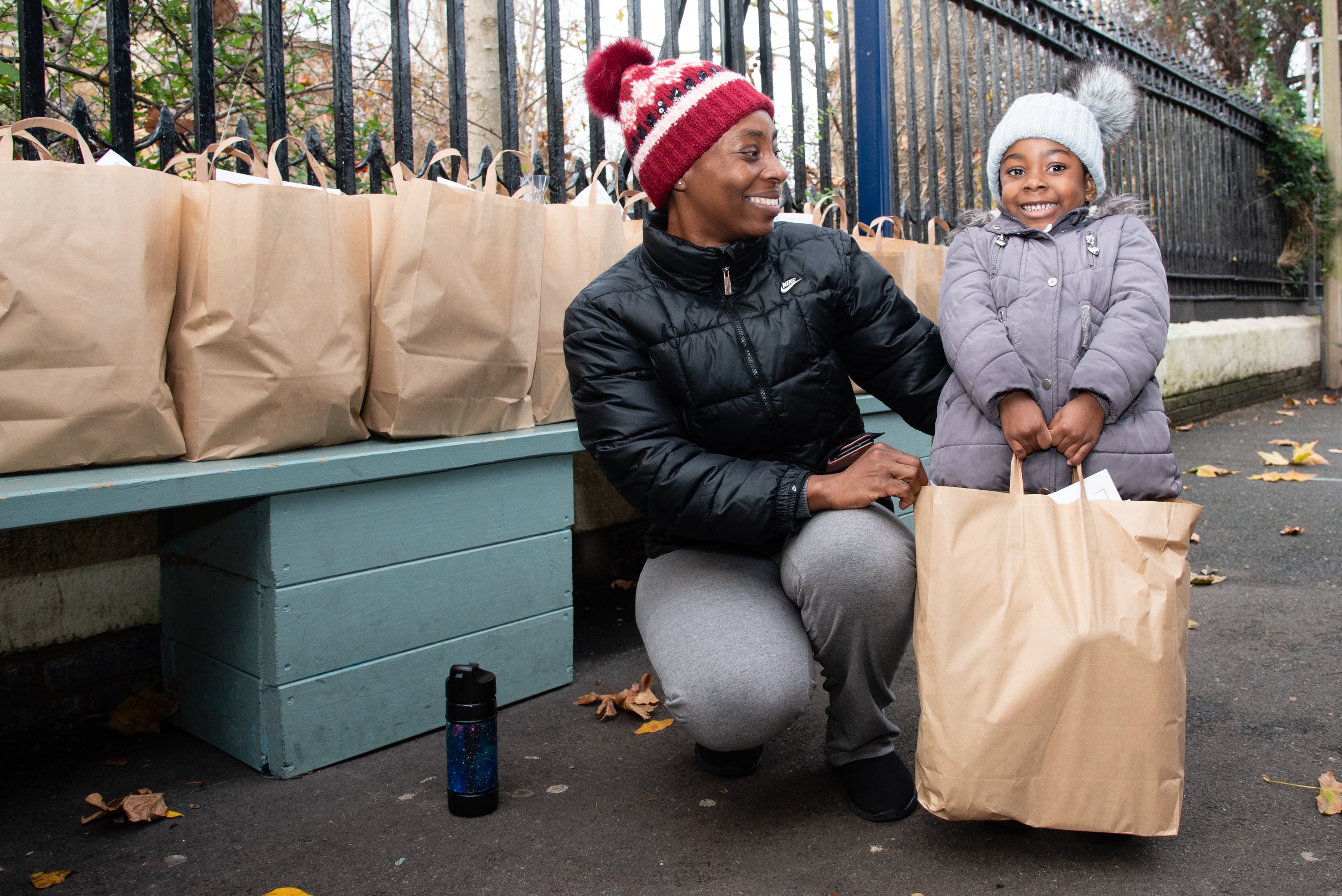British families will be choosing ‘between gas meters and gifts’ this Christmas
For the first time in its 70-year history, Unicef UK is helping children in poverty at home. One in five households with kids have struggled to eat since the pandemic started


Your support helps us to tell the story
From reproductive rights to climate change to Big Tech, The Independent is on the ground when the story is developing. Whether it's investigating the financials of Elon Musk's pro-Trump PAC or producing our latest documentary, 'The A Word', which shines a light on the American women fighting for reproductive rights, we know how important it is to parse out the facts from the messaging.
At such a critical moment in US history, we need reporters on the ground. Your donation allows us to keep sending journalists to speak to both sides of the story.
The Independent is trusted by Americans across the entire political spectrum. And unlike many other quality news outlets, we choose not to lock Americans out of our reporting and analysis with paywalls. We believe quality journalism should be available to everyone, paid for by those who can afford it.
Your support makes all the difference.This year has been one like no other. Many of us have faced extraordinary challenges as a result of this global crisis – but none quite like the challenges faced by families who were already living in poverty and those suffering new financial pressures due to the pandemic.
For children, the coronavirus pandemic is the most urgent crisis since the Second World War. Even before the pandemic struck, an estimated 2.4 million British children were growing up in households that struggled to put food on the table, and since March 2020, this issue has only become worse as the economy suffers and jobs have been lost. One in five households with children has struggled to eat since the UK’s first lockdown.
With Christmas just around the corner, families are having to choose between gas meters and gifts. And, just this week, I heard from a mother having to make a choice this winter between paying her heating bill and giving her children a hot meal, which is nothing short of heart-breaking.
Earlier this year, for the first time in Unicef UK’s 70-year history and in response to this unprecedented crisis, we identified the need to step in and support children and families living in food insecure households, developing a one-off UK domestic emergency programme.
Building on our 25 years’ experience of working on children’s rights in the UK we launched Food Power For Generation Covid in August to enable food access for vulnerable children and families around the country. In partnership with Sustain, the food and farming alliance, more than £700,000 of Unicef UK funds will be granted to community groups around the country to support their vital work helping children and families at risk of food insecurity during the coronavirus pandemic.
The programme provides small scale grants between £5,000 and £25,000 to local food banks, food pantries and other similar organisations to support the country’s children and families who are most in need.
So far, we have awarded grants to more than 30 community organisations across England, Scotland and Wales, including Southwark’s School Food Matters breakfast box scheme, delivering healthy and culturally appropriate breakfasts for children in the school holidays. In Flintshire, Newcastle and Thanet, our funding will help provide cooked meals or meal kits using easy, healthy recipes, while in Aberdeen we’re helping to fund the first mobile community pantry.
We are proud of the work we are delivering with Sustain and our community partners. But, while the delivery of this response and the amazing work being delivered by other food organisations is critical to plug a gap during an unprecedented crisis, this is not a long-term solution – and we can’t do it alone.
The government’s recent announcement to provide a winter support package to families facing hardships in England is a welcome step in the right direction – but we know that more needs to be done. We need the government to commit to a long term, sustainable solution, addressing the root causes of food poverty and placing children at the heart of their pandemic recovery plans to ensure every family can access enough affordable, nutritious food, so that no child goes hungry.
Food poverty is an issue close to many of our hearts, brought out so clearly by Marcus Rashford’s amazing work this year, I acknowledge that it is also a deeply political issue. But for Unicef UK, this is not about political point-scoring or stunts – it’s about our promise to every child and, crucially at this time, coming together to make sure they are fed.
Anna Kettley is Unicef’s UK director of Programmes and Advocacy. To find out more about Unicef UK’s work across the UK, including helping children impacted by the pandemic, visit https://www.unicef.org.uk/what-we-do/our-uk-work/




Join our commenting forum
Join thought-provoking conversations, follow other Independent readers and see their replies
Comments